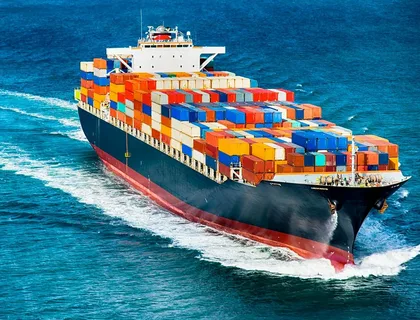When it comes to international shipping, sea cargo remains an indispensable method for transporting goods across the globe. Known for its cost-effectiveness and capacity, sea freight handles the bulk of global trade, making it a crucial component of international logistics. Here’s a brief overview of why sea cargo is such a vital part of the shipping industry and what you should know to navigate its complexities.
Why Choose Sea Cargo?
**1. Cost-Effectiveness: Sea cargo is often the most economical choice for shipping large volumes of goods. Compared to air freight, it offers a lower cost per ton, making it ideal for bulk shipments and long-distance transport.
**2. Large Capacity: Cargo ships can carry enormous quantities of goods, from consumer products to industrial machinery. This vast capacity makes sea freight suitable for a wide range of products, including those that are oversized or heavy.
**3. Global Reach: With extensive networks of major ports and shipping routes, sea cargo provides access to nearly every part of the world. This global reach supports international trade and ensures that products can be delivered to even the most remote locations.
**4. Environmental Benefits: Sea freight is generally more environmentally friendly than air transport. Ships produce less carbon emissions per ton of cargo, making it a more sustainable option for global shipping.
Key Considerations for Sea Cargo
**1. Transit Time: One of the main trade-offs with sea cargo is the longer transit time compared to air freight. Shipping by sea can take several weeks, depending on the route and destination. It’s crucial to plan shipments well in advance to accommodate these longer delivery times.
**2. Documentation and Compliance: Sea cargo involves a range of documentation, including the bill of lading, commercial invoice, and packing list. Ensuring that all paperwork is accurate and complete is essential for smooth customs clearance and to prevent delays.
**3. Packaging and Handling: Proper packaging is vital to protect goods during transit. Sea cargo often faces rough handling and exposure to environmental conditions, so sturdy packaging is necessary to prevent damage.
**4. Customs Regulations: Each country has specific import regulations and customs requirements. Familiarize yourself with the regulations of both the shipping origin and destination to ensure compliance and avoid issues at customs.
**5. Insurance: Considering the potential risks associated with sea transport, such as damage or loss, obtaining cargo insurance is advisable. Insurance provides financial protection and peace of mind.
Tips for Effective Sea Cargo Shipping
**1. Plan Ahead: Due to the longer transit times, start planning your shipments early. Booking in advance helps secure space and allows for better coordination of logistics.
**2. Select a Reliable Carrier: Choose a reputable shipping company or freight forwarder with experience in sea cargo. Their expertise can help streamline the process, handle documentation, and manage logistics effectively.
**3. Optimize Your Packaging: Invest in high-quality packaging that can withstand the rigors of sea transport. Proper packaging helps protect your goods from damage and ensures they arrive in good condition.
**4. Understand the Costs: Be aware of all costs associated with sea cargo, including shipping fees, port charges, and customs duties. Understanding these costs helps in budgeting and avoids unexpected expenses.
**5. Track Your Shipment: Utilize tracking services provided by the shipping company to monitor your cargo’s progress. Staying informed about the status of your shipment helps manage expectations and address any issues promptly.
Final Words
Sea cargo plays a crucial role in the global shipping industry, offering a cost-effective and efficient solution for transporting large quantities of goods across long distances. By understanding its advantages and addressing key factors such as transit time, documentation, and packaging, you can make the most of sea freight for your shipping needs. Whether for business or personal use, sea cargo remains a reliable and essential method of global transportation.



